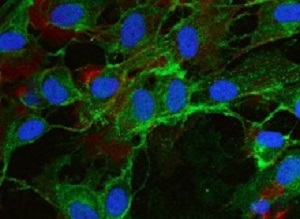 There is real hope for treating spinal cord injury with stem cell-based therapies in the future. However, writes Paul Knoepfler on the Knoepfler Lab Stem Cell blog, unfortunately regulators in Japan have taken a major misstep in approving a not-ready-for-primetime mesenchymal stem cell (MSC)-based approach to spinal cord injury. Their decision is dangerous and unwise.
There is real hope for treating spinal cord injury with stem cell-based therapies in the future. However, writes Paul Knoepfler on the Knoepfler Lab Stem Cell blog, unfortunately regulators in Japan have taken a major misstep in approving a not-ready-for-primetime mesenchymal stem cell (MSC)-based approach to spinal cord injury. Their decision is dangerous and unwise.
Knoepfler writes: “In a Nature piece by David Cyranoski we learn that the MSC therapy in question is still unproven. There are only limited data available to support it, which are not from rigorous studies. The claimed outcomes so far using this therapy are also puzzling and controversial. Thus, the approval is extremely high risk. I believe it is likely to do more harm than good to patients and the stem cell field.
Knoepfler writes that some Japanese regulators are more than upbeat on this approach: “This is an unprecedented revolution of science and medicine, which will open a new era of healthcare,” says oncologist Masanori Fukushima, head of the Translational Research Informatics Centre, a Japanese government organisation in Kobe that has been giving advice and support to the project for more than a decade.”
He points out that a phrase like “unprecedented revolution” is often a red flag for hype.
Knoepfler writes: “Ten independent experts that Nature contacted were concerned about the approval: ‘But independent researchers warn that the approval is premature. Ten specialists in stem-cell science or spinal-cord injuries, who were approached for comment by Nature and were not involved in the work or its commercialisation, say that evidence that the treatment works is insufficient. Many of them say that the approval for the therapy, which is injected intravenously, was based on a small, poorly designed clinical trial.’”
He says this doesn’t sound good adding that the approval seems like a recipe for trouble and sets a bad precedent. But of course, he says, the inventors of this product now called Stemirac are very positive:
“One of the inventors of the treatment, neurosurgeon Osamu Honmou of Sapporo Medical University in Japan, says he is preparing to publish a scientific paper that will discuss the clinical-trial and safety issues. “I think it is very safe.” He says he did not do a double-blinded study because Japan’s regulations do not require it. “The most important point is that the efficacy is dramatic and definitive,” says Fukushima.
The unpublished results describe a trial of 13 people, who had experienced spinal-cord injuries in the past 40 days. The team found that infusions of stem cells extracted from the patients’ bone marrow helped them to regain some lost sensation and movement.
Knoepfler writes: “To me it doesn’t make a lot of sense that an IV infusion of MSCs would significantly aid spinal cord injury. For one thing these cells tend to accumulate in the lungs. They also mostly don’t survive more than a few days. How would this help an injury as severe as major spinal cord damage? There is also some claim that the MSCs turn into brain cells such as neurons, which is highly controversial.
“I wonder if they ruled out cell fusion? In work by my lab in collaboration with my University of California-Davis colleague Veronica Martinez-Cerdeno where we transplanted undifferentiated hESC and hIPSC into mouse brain, we found a surprisingly high degree of fusion of the stem cells with resident brain cells including neurons.
“Unfortunately, it seems likely that placebo effect played some major role in the study results related to this approval. Once patients start paying for it (which kicks in soon), the placebo effect is likely to be further amplified. It also isn’t right for patients to have to pay for an unproven therapy.”
Knoepfler writes that sadly, this controversial approval by regulators in Japan may end up having another negative consequence. It’s likely to be a big help to unproven stem cell clinics. He says some of these for-profit clinics sell various kind of MSCs for spinal cord injury, autism, or other conditions that don’t make sense at this time.
More broadly, the relatively permissive regenerative medicine regulatory system in Japan has been controversial. But Knoepfler writes, this new approval is by far the most controversial to date and is a step backward for regenerative medicine science.
[link url="https://ipscell.com/2019/01/japans-dangerous-gamble-approving-unproven-stem-cells-for-spinal-cord-injury/"]Knoepfler Lab Stem Cell Blog material[/link]
[link url="https://www.nature.com/articles/d41586-019-00178-x"]Nature article[/link]
